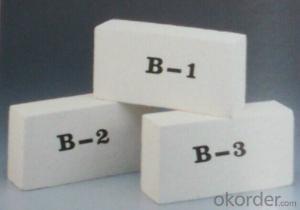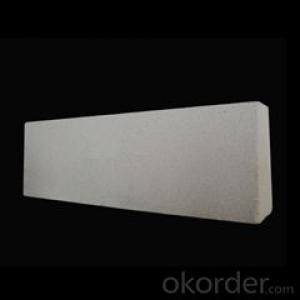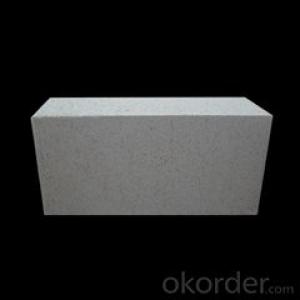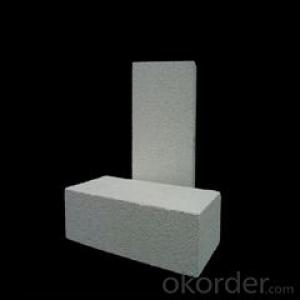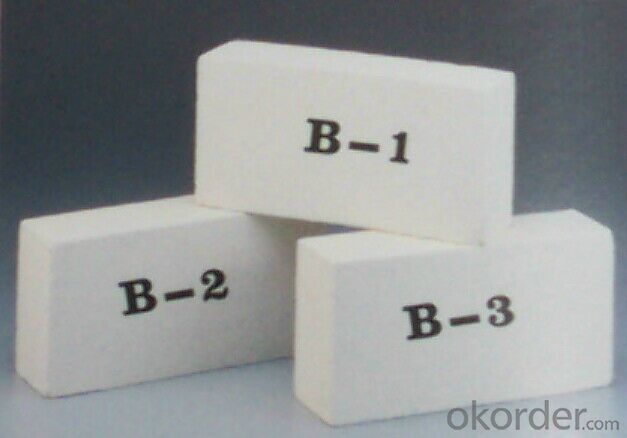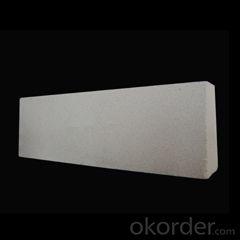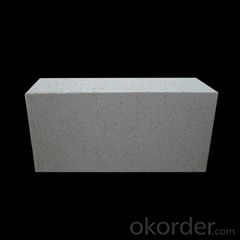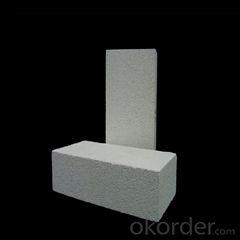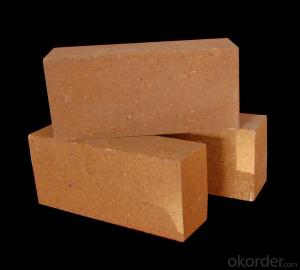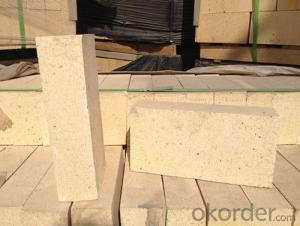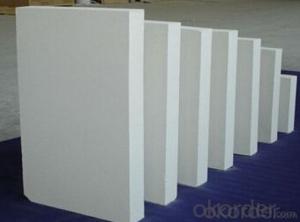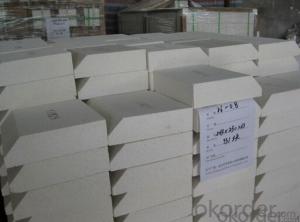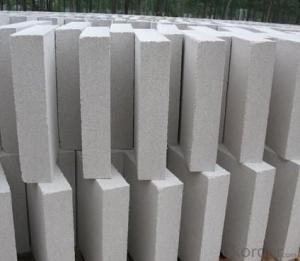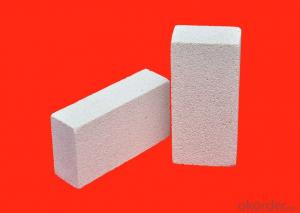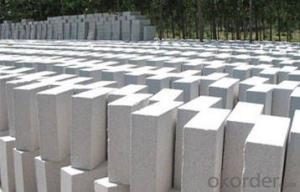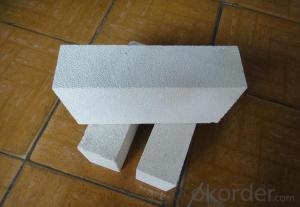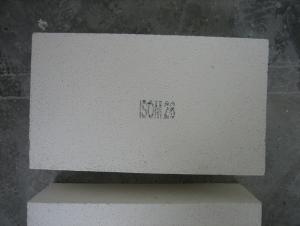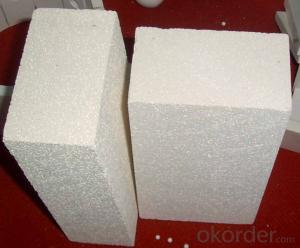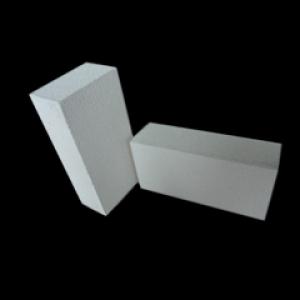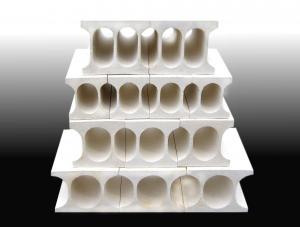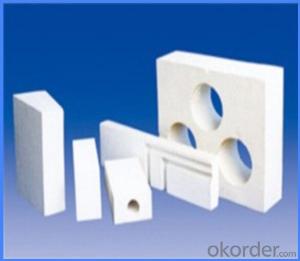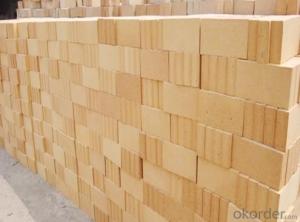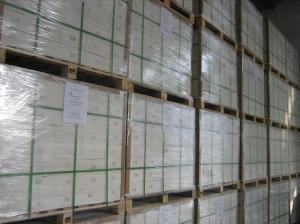Insulating Fire Brick - Refractory Mullite Insulating Refractory Brick JM 96
- Loading Port:
- Shanghai
- Payment Terms:
- TT OR LC
- Min Order Qty:
- 5000 kg
- Supply Capability:
- 10000 kg/month
OKorder Service Pledge
OKorder Financial Service
You Might Also Like
Refractory mullite insulating refractory brick JM 23
Okorder series heat insulation brick
Okorder series thermal insulation brick is an effective, energy saving, low carbon, environmental protection advanced, according to the ASTM standard manufacturing products. Okorder series products are best Li Ning and insulation in all types of industrial furnaces in the metallurgical field, aluminum, petrochemical, electric power and glass ceramic materials. They can be used as part of the working layer of thermal insulation or non - melting. Products have been widely used in the following furnace, achieved satisfactory results.
Application of heat preservation brick
Metallurgical Industry: blast furnace, hot blast furnace, heating furnace, etc..
Petrochemical Industry: ethylene cracking furnace, hydrogen production furnace, primary reformer, heating furnace, etc..
Ceramic industry: roller kiln, kiln, etc..
Glass industry: glass furnace regenerator, etc.
Carbon industry: carbon furnace, etc..
Aluminum electrolysis industry: aluminum reduction cell, etc.
Other industries: tunnel kiln, shuttle kiln, etc..
Advantages of heat insulation brick
Low thermal conductivity: more porosity will bring good thermal insulation effect, energy saving.
High crushing strength: high crushing strength, volume stability.
Low heat storage: small heat storage to absorb more heat, energy-saving effect is obvious.
Gao Chundu: iron, alkali metal impurity content is low.
The precise size: Brick size processing precision, special shape cutting and grinding, accelerate the brickwork.
Insulating brick picture
Common problem solutions
1. What products do you have?
We have all kinds of refractory bricks, refractory casting materials, mortar, cement, ceramic fiber products, etc..
Or you can browse our products to choose what you need.
2. How to control product quality?
With strict quality control system throughout the material selection and production process, we have the quality of refractory materials and ceramic fiber products to meet customer requirements.
From the selection of raw materials, the quality of our control to start. The quality certificate of the raw material is required, each batch of the products are to be tested in the use of the forward line. In the production process, the quality control by the workers, and then each piece of classification, and through the quality supervision and inspection.
3. Can you give me a brief introduction to the application of your product?
My company is mainly engaged in refractories in the steel, cement, glass, ceramics, petrochemical, electric power and other industries.
4. What information do you need if I need you?
In order to select the right products, we will provide us with information, such as the United States, technical data, order quantity, product application, etc..
If you have any questions, please contact us.
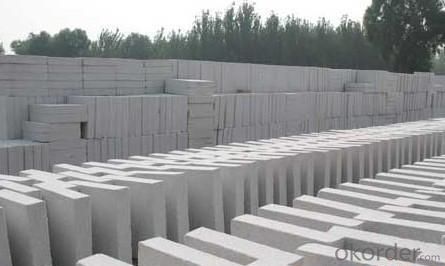
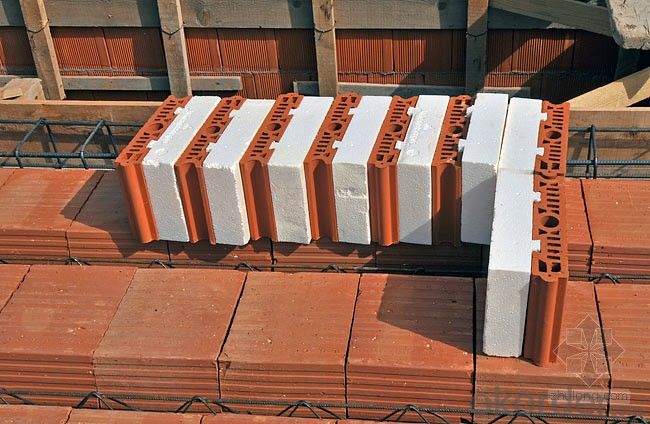
- Q: Can insulating fire bricks be used for insulation in cement kilns?
- Insulation in cement kilns can be achieved by using insulating fire bricks. These bricks are made from lightweight materials like ceramic fibers or expanded clay, which possess high insulation properties. Their low thermal conductivity allows them to effectively reduce heat transfer and retain heat within the kiln. Cement kilns operate at extremely high temperatures, often surpassing 1,400 degrees Celsius (2,500 degrees Fahrenheit). Incorporating insulating fire bricks in the kiln helps prevent heat loss, enhances energy efficiency, and reduces fuel consumption. By creating a barrier between the hot gases inside the kiln and the surrounding environment, these bricks minimize heat escape. Additionally, insulating fire bricks exhibit remarkable resistance to thermal shocks, enabling them to withstand the severe temperature fluctuations that occur in cement kilns. This durability ensures long-lasting insulation, minimizing the need for frequent maintenance and replacement. Nevertheless, it is crucial to note that the specific type and composition of insulating fire bricks required for cement kiln insulation may vary depending on factors such as the kiln's design and operating conditions. Consulting with experts or manufacturers specializing in refractory materials is advisable to ensure the correct selection and installation of insulating fire bricks for cement kiln insulation.
- Q: Are insulating fire bricks suitable for use in incinerators?
- Indeed, insulating fire bricks are well-suited for utilization in incinerators. Tailored specifically to endure elevated temperatures and offer exceptional insulation qualities, these bricks prove to be ideal for incinerators. They exhibit remarkable resistance to thermal shock, ensuring their structural integrity remains intact even under extreme heat exposure. Moreover, these bricks possess low thermal conductivity, which aids in diminishing heat loss and enhancing the overall energy efficiency of the incinerator. The combination of their heat endurance and insulation effectiveness renders them a dependable option for incinerator utilization.
- Q: Can insulating fire bricks be used in high-temperature kilns and furnaces?
- High-temperature kilns and furnaces can indeed utilize insulating fire bricks. These bricks are specifically designed to endure extreme heat and offer remarkable insulation properties. They consist of lightweight refractory materials, including clay and silica, which possess high melting points and low thermal conductivity. By effectively retaining heat, these bricks decrease energy loss and enhance the efficiency of the kiln or furnace. Moreover, insulating fire bricks exhibit excellent resistance to thermal shock, enabling them to withstand rapid temperature fluctuations without cracking or breaking. Consequently, they are well-suited for high-temperature applications that involve frequent heating and cooling cycles in kilns or furnaces. All in all, insulating fire bricks represent an ideal choice for insulating and safeguarding high-temperature kilns and furnaces.
- Q: Can insulating fire bricks be used in the construction of lime production molds?
- Indeed, insulating fire bricks are capable of being utilized in the creation of lime production molds. These bricks are engineered to possess exceptional thermal resistance, rendering them exceptionally suitable for situations necessitating insulation and safeguarding against intense heat. Given that lime production molds generally entail elevated temperatures throughout the firing procedure, insulating fire bricks can effectively uphold the desired temperature and prevent heat dissipation. Moreover, the insulating attributes of these bricks can effectively curtail energy consumption and enhance the efficacy of the lime production process. Thus, opting for the utilization of insulating fire bricks in the construction of lime production molds proves to be an appropriate decision.
- Q: Do insulating fire bricks have a high compressive strength?
- Yes, insulating fire bricks typically have a high compressive strength. These bricks are made from special refractory materials that are designed to withstand high temperatures and mechanical stress. As a result, they have excellent compressive strength, allowing them to bear heavy loads without cracking or breaking. The high compressive strength of insulating fire bricks makes them ideal for applications where structural integrity is crucial, such as in furnaces, kilns, and other high-temperature industrial equipment.
- Q: Are insulating fire bricks resistant to moisture penetration?
- Yes, insulating fire bricks are resistant to moisture penetration.
- Q: Are insulating fire bricks resistant to insects and rodents?
- Insulating fire bricks do not have a specific design to resist insects and rodents. Although these bricks are mainly utilized for their exceptional thermal insulation properties in high-temperature settings like furnaces and kilns, they lack inherent resistance against pests. In case you have worries about insects or rodents, it is advisable to incorporate supplementary pest control methods such as sealing gaps or cracks and employing suitable pest deterrents.
- Q: Can insulating fire bricks be used in lime plants?
- Yes, insulating fire bricks can be used in lime plants. They are commonly used in high-temperature applications, such as lime kilns, to provide thermal insulation and reduce heat loss. Insulating fire bricks help maintain consistent and efficient heat distribution, which is essential for the lime production process.
- Q: Can insulating fire bricks be used in the construction of smelting furnaces?
- Smelting furnaces can indeed utilize insulating fire bricks in their construction. These bricks have been specifically crafted to endure extreme temperatures and offer exceptional insulation, rendering them an impeccable choice for smelting furnaces. Their low thermal conductivity aids in minimizing heat dissipation and upholding a steady temperature within the furnace. Moreover, these bricks are lightweight, which facilitates their handling and installation. All in all, incorporating insulating fire bricks in the construction of smelting furnaces can enhance energy efficiency, diminish operational expenses, and elevate the overall furnace performance.
- Q: How do insulating fire bricks affect the overall efficiency of a heating system?
- Insulating fire bricks play a crucial role in enhancing the overall efficiency of a heating system. These bricks are specifically designed to have low thermal conductivity, meaning they are excellent at trapping and retaining heat within the system. By using insulating fire bricks, the heat loss from the heating system is significantly reduced, resulting in improved energy efficiency. One of the key benefits of insulating fire bricks is their ability to minimize heat transfer through conduction. These bricks have a high resistance to heat flow, which means they act as a barrier, preventing the heat from escaping the system. This is especially important in areas where high temperatures are generated, such as furnaces or kilns. By containing the heat within the system, insulating fire bricks enable the heating system to maintain a consistent temperature, reducing the need for excessive energy consumption to compensate for heat loss. Furthermore, insulating fire bricks also help decrease heat loss through radiation. These bricks have a high emissivity, which means they radiate less heat than other materials. As a result, the heat produced by the system is focused on the desired area, rather than being wasted through radiation. This not only improves the efficiency of the heating system but also ensures that the heat is effectively utilized for the intended purpose. Another advantage of insulating fire bricks is their ability to withstand high temperatures without deteriorating. Due to their composition and manufacturing process, these bricks can handle extreme heat levels, maintaining their structural integrity over time. This durability is important for the longevity of the heating system and ensures that the insulating properties of the bricks remain intact. In summary, insulating fire bricks have a significant positive impact on the overall efficiency of a heating system. Their low thermal conductivity, ability to minimize heat transfer through conduction and radiation, and durability at high temperatures all contribute to reducing heat loss and improving energy efficiency. By incorporating insulating fire bricks into a heating system, users can enjoy a more efficient and cost-effective heating solution.
Send your message to us
Insulating Fire Brick - Refractory Mullite Insulating Refractory Brick JM 96
- Loading Port:
- Shanghai
- Payment Terms:
- TT OR LC
- Min Order Qty:
- 5000 kg
- Supply Capability:
- 10000 kg/month
OKorder Service Pledge
OKorder Financial Service
Similar products
Hot products
Hot Searches
Related keywords
